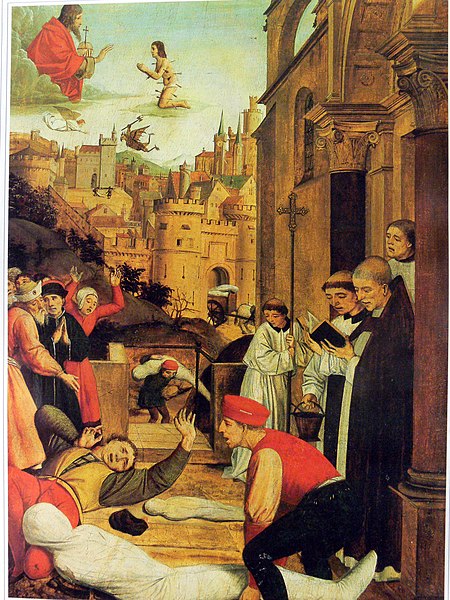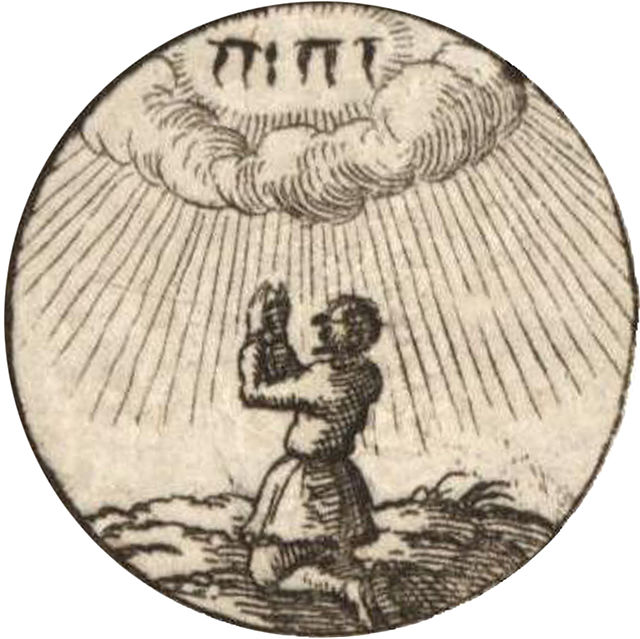Intercession of the Saints is a Christian doctrine that maintains that saints can intercede for others. To intercede is to go or come between two parties, to plead before one of them on behalf of the other. It is held by the Catholic, Eastern Orthodox, Assyrian Church of the East, and Oriental Orthodox churches, and some Lutherans and Anglicans. The practice of praying to saints for their intercession can be found in Christian writings from the 3rd century onwards.
"As we celebrate with our festive gatherings the birthday of this great man, the Lord's forerunner, the blessed John, let us ask for the help of his prayers. Because he is the friend of the bridegroom, you see, he can also obtain for us that we can belong to the bridegroom, that we may be thought worthy to obtain his grace." – St. Augustine.
Saint Sebastian pleads with Jesus (at top left) for the life of a gravedigger afflicted by plague during the Plague of Justinian. (Josse Lieferinxe, c. 1497–99)
"Scripture does not teach calling on the saints or pleading for help from them. For it sets before us Christ alone as mediator, atoning sacrifice, high priest, and intercessor."—Augsburg Confession (Lutheran), Article XXI.
Intercession or intercessory prayer is the act of praying to a deity on behalf of others, or asking a saint in heaven to pray on behalf of oneself or for others.
A German votive offering thanks to the Virgin Mary in the form of a painting (1796)




